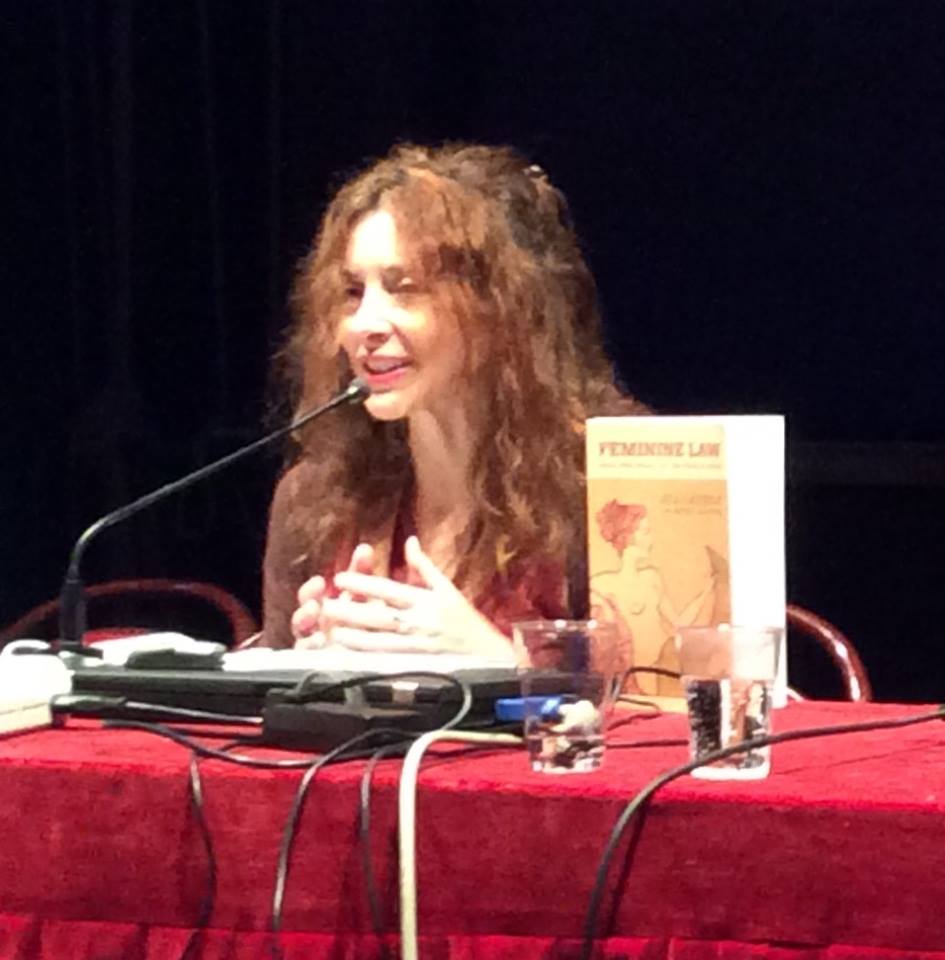|
A.S.S.E.Psi.
web site (History of Psychiatry and Psychoanalytic Psychotherapy
)
A.S.S.E.Psi.NEWS
(to subscribe our monthly newsletter)
Ce.Psi.Di. (Centro
di Psicoterapia Dinamica "Mauro Mancia")
Maitres
à dispenser (Our reviews about psychoanalytic congresses)
Biblio
Reviews (Recensioni)
Congressi
ECM (in italian)
Events
(our congresses)
Tatiana Rosenthal
and ... other 'psycho-suiciders'
Thalassa.
Portolano of Psychoanalysis
PsychoWitz - Psychoanalysis and Humor (...per ridere un po'!)
Giuseppe Leo's Art
Gallery
Spazio
Rosenthal (femininity and psychoanalysis)
Psicoanalisi
Europea Video
Channel
A.S.S.E.Psi. Video
Channel
Ultima uscita/New issue:
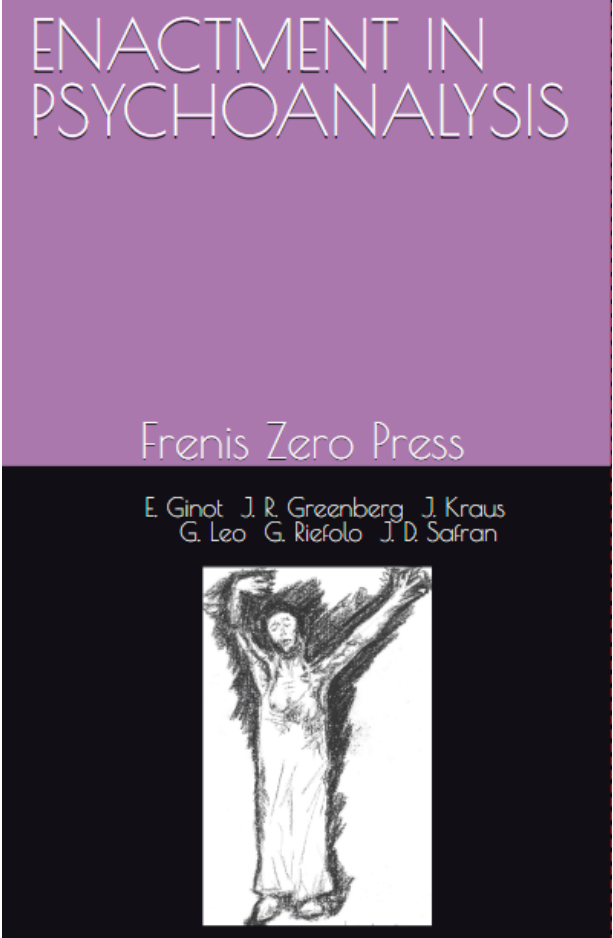
"Enactment
in Psychoanalysis"
Edited
by Giuseppe Leo & Giuseppe Riefolo
Writings
by: E. Ginot J.R.
Greenberg J. Kraus J.D. Safran
Publisher:
Frenis Zero
Collection:
Borders of Psychoanalysis
Year:
2019
Pages:
326
ISBN: 978-88-97479-15-4
Click
here to order the book

"Infant
Research and Psychoanalysis"
Edited
by Giuseppe Leo
Writings
by: B. Beebe K.
Lyons-Ruth J. P. Nahum E. Solheim C.
Trevarthen E. Z. Tronick L.
Vulliez-Coady
Publisher:
Frenis Zero
Collection:
Borders of Psychoanalysis
Year:
2018
Pages:
273
ISBN: 978-88-97479-14-7
Click
here to order the book

"Fundamentalism
and Psychoanalysis"
Edited
by Giuseppe Leo
Prefaced
by: Vamik D. Volkan
Writings
by: L. Auestad W.
Bohleber S. Varvin L. West
Publisher:
Frenis Zero
Collection:
Mediterranean Id-entities
Year:
2017
Pages:
214
ISBN: 978-88-97479-13-0
Click
here to order the book

"Psicoanalisi, luoghi della resilienza
ed immigrazione"
Edited
by/a cura di:
Giuseppe Leo
Writings by/scritti di:
S.
Araùjo Cabral, L.
Curone,
M. Francesconi,
L.
Frattini,
S.
Impagliazzo,
D. Centenaro Levandowski, G. Magnani, M. Manetti, C. Marangio,
G. A. Marra e Rosa, M. Martelli, M. R. Moro,
R. K. Papadopoulos, A. Pellicciari,
G. Rigon,
D.
Scotto di Fasano,
E. Zini, A. Zunino
Editore/Publisher: Edizioni Frenis Zero
Collection/Collana: Mediterranean
Id-entities
Anno/Year:
2017
Pagine/Pages:
372
ISBN:978-88-97479-11-6

"Psicoanalisi in Terra Santa"
Edited
by/a cura di: Ambra Cusin & Giuseppe Leo
Prefaced by/prefazione
di:
Anna Sabatini Scalmati
Writings by/scritti di:
H. Abramovitch A. Cusin M. Dwairy A. Lotem M.
Mansur M. P. Salatiello Afterword
by/ Postfazione
di:
Ch. U. Schminck-Gustavus
Notes by/ Note di: Nader Akkad
Editore/Publisher: Edizioni Frenis Zero
Collection/Collana: Mediterranean
Id-entities
Anno/Year:
2017
Pagine/Pages:
170
ISBN:978-88-97479-12-3

"Essere bambini a Gaza. Il trauma
infinito"
Authored
by/autore: Maria Patrizia Salatiello
Editore/Publisher: Edizioni Frenis Zero
Collection/Collana: Mediterranean
Id-entities
Anno/Year:
2016
Pagine/Pages:
242
ISBN:978-88-97479-08-6

Psychoanalysis,
Collective Traumas and Memory Places (English Edition)
Edited
by/a cura di: Giuseppe Leo Prefaced by/prefazione
di:
R.D.Hinshelwood
Writings by/scritti di: J. Altounian
W. Bohleber J. Deutsch
H. Halberstadt-Freud Y. Gampel
N. Janigro R.K. Papadopoulos
M. Ritter S. Varvin H.-J. Wirth
Editore/Publisher: Edizioni Frenis Zero
Collection/Collana: Mediterranean
Id-entities
Anno/Year:
2015
Pagine/Pages:
330
ISBN:978-88-97479-09-3

"L'uomo
dietro al lettino" di
Gabriele Cassullo
Prefaced
by/prefazione di: Jeremy
Holmes
Editore/Publisher: Edizioni Frenis Zero
Collection/Collana: Biografie
dell'Inconscio
Anno/Year:
2015
Pagine/Pages:
350
ISBN:978-88-97479-07-9
Prezzo/Price:
€ 29,00
Click
here to order the book
(per Edizione
rilegata- Hardcover clicca qui)

"Neuroscience
and Psychoanalysis" (English Edition)
Edited by/a cura di: Giuseppe Leo Prefaced by/prefazione
di: Georg Northoff
Writings by/scritti di: D. Mann
A. N. Schore R. Stickgold
B.A. Van Der Kolk G. Vaslamatzis M.P. Walker
Editore/Publisher: Edizioni Frenis Zero
Collection/Collana: Psicoanalisi e neuroscienze
Anno/Year: 2014
Pagine/Pages: 300
ISBN:978-88-97479-06-2
Prezzo/Price: € 49,00
Click
here to order the book

Vera
Schmidt, "Scritti su psicoanalisi infantile ed
educazione"
Edited by/a cura di: Giuseppe Leo Prefaced by/prefazione
di: Alberto Angelini
Introduced by/introduzione di: Vlasta Polojaz
Afterword by/post-fazione di: Rita Corsa
Editore/Publisher: Edizioni Frenis Zero
Collana: Biografie dell'Inconscio
Anno/Year: 2014
Pagine/Pages: 248
ISBN:978-88-97479-05-5
Prezzo/Price: € 29,00
Click
here to order the book

Resnik,
S. et al. (a cura di Monica Ferri), "L'ascolto dei
sensi e dei luoghi nella relazione terapeutica"
Writings by:A.
Ambrosini, A. Bimbi, M. Ferri, G.
Gabbriellini, A. Luperini, S. Resnik,
S. Rodighiero, R. Tancredi, A. Taquini Resnik,
G. Trippi
Editore/Publisher: Edizioni Frenis Zero
Collana: Confini della Psicoanalisi
Anno/Year: 2013
Pagine/Pages: 156
ISBN:978-88-97479-04-8
Prezzo/Price: € 37,00
Click
here to order the book
Silvio
G. Cusin, "Sessualità e conoscenza"
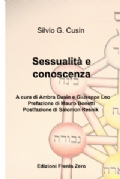
A cura di/Edited by: A. Cusin & G. Leo
Editore/Publisher: Edizioni Frenis Zero
Collana/Collection: Biografie dell'Inconscio
Anno/Year: 2013
Pagine/Pages: 476
ISBN: 978-88-97479-03-1
Prezzo/Price:
€ 39,00
Click
here to order the book
AA.VV.,
"Psicoanalisi e luoghi della riabilitazione", a cura
di G. Leo e G. Riefolo (Editors)
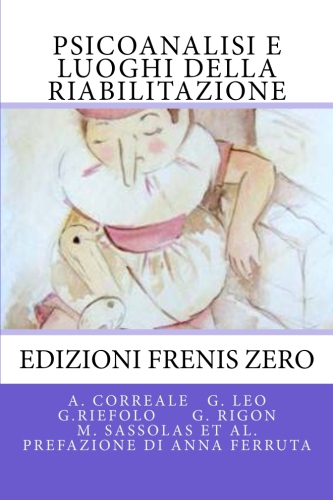
A cura di/Edited by: G. Leo & G. Riefolo
Editore/Publisher: Edizioni Frenis Zero
Collana/Collection: Id-entità mediterranee
Anno/Year: 2013
Pagine/Pages: 426
ISBN: 978-88-903710-9-7
Prezzo/Price:
€ 39,00
Click
here to order the book
AA.VV.,
"Scrittura e memoria", a cura di R. Bolletti (Editor)

Writings by: J.
Altounian, S. Amati Sas, A. Arslan, R. Bolletti, P. De
Silvestris, M. Morello, A. Sabatini Scalmati.
Editore/Publisher: Edizioni Frenis Zero
Collana: Cordoglio e pregiudizio
Anno/Year: 2012
Pagine/Pages: 136
ISBN: 978-88-903710-7-3
Prezzo/Price: € 23,00
Click
here to order the book
AA.VV., "Lo
spazio velato. Femminile e discorso
psicoanalitico"
a cura di G. Leo e L. Montani (Editors)
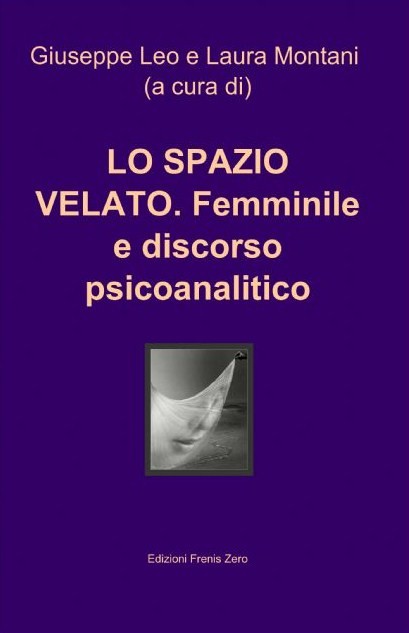
Writings by: A.
Cusin, J. Kristeva, A. Loncan, S. Marino, B.
Massimilla, L. Montani, A. Nunziante Cesaro, S.
Parrello, M. Sommantico, G. Stanziano, L.
Tarantini, A. Zurolo.
Editore/Publisher: Edizioni Frenis Zero
Collana: Confini della psicoanalisi
Anno/Year: 2012
Pagine/Pages: 382
ISBN: 978-88-903710-6-6
Prezzo/Price: € 39,00
Click
here to order the book
AA.VV., Psychoanalysis
and its Borders, a cura di
G. Leo (Editor)

Writings by: J. Altounian, P.
Fonagy, G.O. Gabbard, J.S. Grotstein, R.D. Hinshelwood, J.P.
Jimenez, O.F. Kernberg, S. Resnik.
Editore/Publisher: Edizioni Frenis Zero
Collana/Collection: Borders of Psychoanalysis
Anno/Year: 2012
Pagine/Pages: 348
ISBN: 978-88-974790-2-4
Prezzo/Price: € 19,00
Click
here to order the book
AA.VV.,
"Psicoanalisi e luoghi della negazione", a cura di A.
Cusin e G. Leo

Writings by:J.
Altounian, S. Amati Sas, M. e M. Avakian, W. A.
Cusin, N. Janigro, G. Leo, B. E. Litowitz, S. Resnik, A.
Sabatini Scalmati, G. Schneider, M. Šebek,
F. Sironi, L. Tarantini.
Editore/Publisher: Edizioni Frenis Zero
Collana/Collection: Id-entità mediterranee
Anno/Year: 2011
Pagine/Pages: 400
ISBN: 978-88-903710-4-2
Prezzo/Price: € 38,00
Click
here to order the book
"The Voyage Out" by Virginia
Woolf

Editore/Publisher: Edizioni Frenis Zero
ISBN: 978-88-97479-01-7
Anno/Year: 2011
Pages: 672
Prezzo/Price: € 25,00
Click
here to order the book
"Psicologia
dell'antisemitismo" di Imre Hermann

Author:Imre Hermann
Editore/Publisher: Edizioni Frenis Zero
ISBN: 978-88-903710-3-5
Anno/Year: 2011
Pages: 158
Prezzo/Price: € 18,00
Click
here to order the book
"Id-entità mediterranee.
Psicoanalisi e luoghi della memoria" a cura di Giuseppe Leo
(editor)
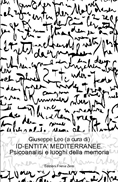
Writings by: J.
Altounian, S. Amati Sas, M. Avakian, W. Bohleber, M. Breccia, A.
Coen, A. Cusin, G. Dana, J. Deutsch, S. Fizzarotti Selvaggi, Y.
Gampel, H. Halberstadt-Freud, N. Janigro, R. Kaës, G. Leo, M.
Maisetti, F. Mazzei, M. Ritter, C. Trono, S. Varvin e H.-J. Wirth
Editore/Publisher: Edizioni Frenis Zero
ISBN: 978-88-903710-2-8
Anno/Year: 2010
Pages: 520
Prezzo/Price: € 41,00
Click
here to have a preview
Click
here to order the book
"Vite soffiate. I vinti della
psicoanalisi" di Giuseppe Leo
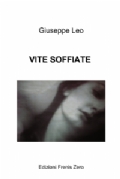
Editore/Publisher: Edizioni Frenis Zero
Edizione: 2a
ISBN: 978-88-903710-5-9
Anno/Year: 2011
Prezzo/Price: € 34,00
Click
here to order the book
"La Psicoanalisi e i suoi
confini" edited by Giuseppe Leo
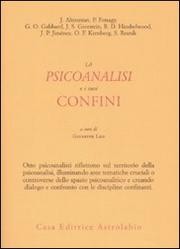
Writings by: J.
Altounian, P. Fonagy, G.O. Gabbard, J.S. Grotstein, R.D.
Hinshelwood, J.P. Jiménez, O.F. Kernberg, S. Resnik
Editore/Publisher: Astrolabio Ubaldini
ISBN: 978-88-340155-7-5
Anno/Year: 2009
Pages: 224
Prezzo/Price: € 20,00
"La Psicoanalisi. Intrecci Paesaggi
Confini"
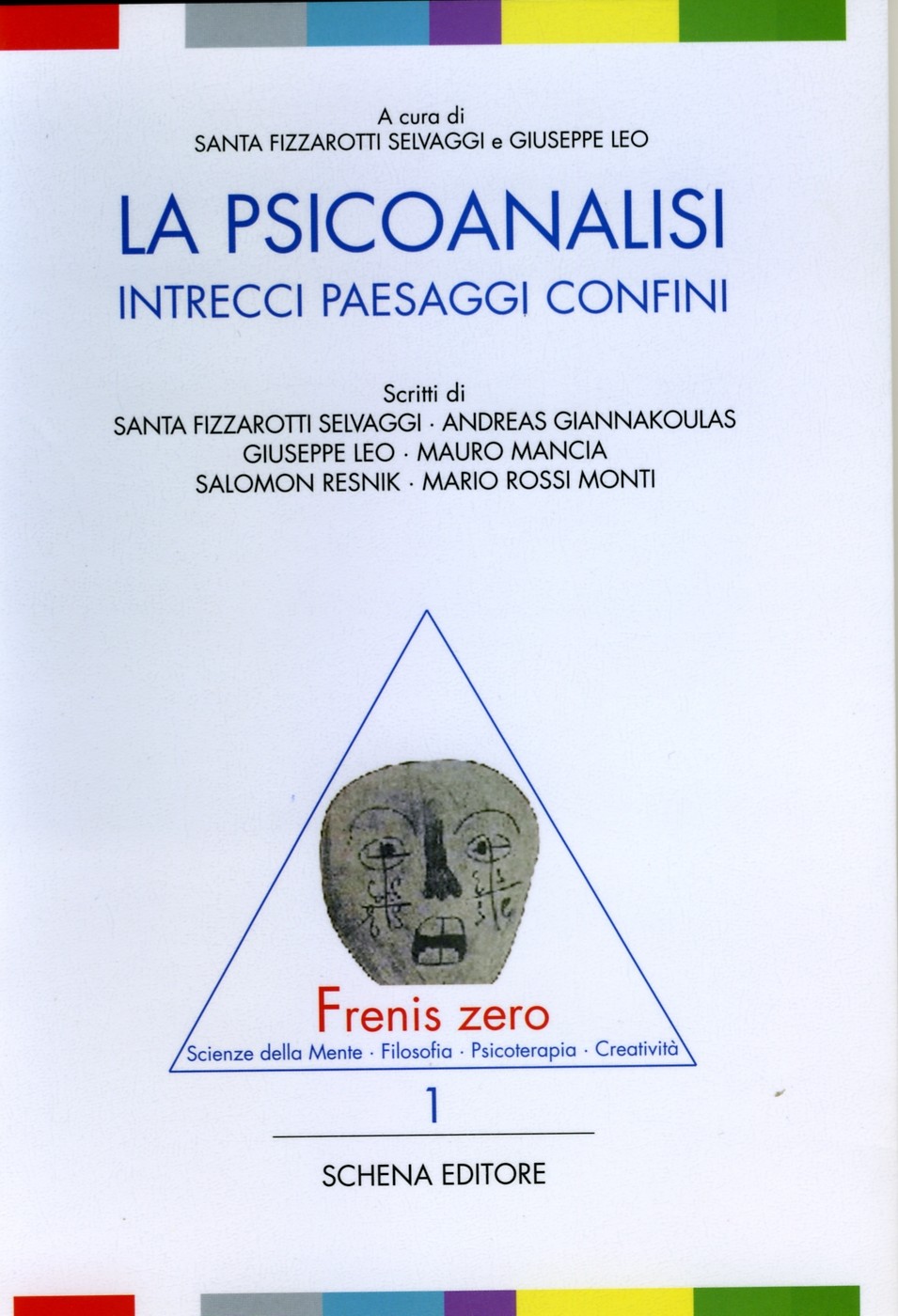
Edited by S. Fizzarotti Selvaggi, G.Leo.
Writings by: Salomon Resnik, Mauro Mancia, Andreas Giannakoulas,
Mario Rossi Monti, Santa Fizzarotti Selvaggi, Giuseppe Leo.
Publisher: Schena Editore
ISBN 88-8229-567-2
Price: € 15,00
Click here to order the
book |
|
In
a recent interview,[1]
Adam Phillips ventured the hypothesis that psychoanalysis was invented
to address the problem of misogyny. This was a bold and unusual
statement; and though we’ve long been inititated into Phillips’
refreshing, even scandalous. takes on often otherwise mundane or
familiar assumptions, this seemed, at least to me, an astonishing
statement, striking not because it was outlandish, but because it was
utterly, perceptively true.
Of
course, psychoanalysis generally presents a different picture of
itself, a picture of progressive self-knowledge, even liberation. Such
is also the picture commonly painted of the democratic project. Or at
least of democracy as theory. In practice, democracy has inevitably
reiterated patriarchy and has absorbed its underlying misogyny. Since
the days of Pericles, democracies have preached equality and
inclusiveness while in practice merely establishing new sorts of
invidious hierarchy. Democracies have enslaved; they have colonized;
they have subjugated the "other"—the taboo, the strange,
the marginal, and, above all, the feminine. But the degradation of
women, as noted by psychoanalyst D.W. Winnicott, is fundamentally
anti-democratic. Misogyny (which he traced to the fear of being
indebted to and subjugated by mother) goes hand-in-hand with
authoritarianism, with the cult of power. He thus anticipated our
contemporary global flirtation-crisis with autocracy, fascism, and
pseudo-masculinist disourses.
It
is a commonplace of psychoanalysis that our own “founding father,”
Sigmund Freud, injected his own misogyny into our theories, lacing
psychoanalysis’s origin story with a foundational violence that
similarly amplified the voice of patriarchy, even as he contrarily
appealed to the voice of Eros, the voice of desire. The feminine was
degraded, and the vagina in particular bore the brunt of the injury,
being cast as inferior, as a wound, a mark of castration. Other groups,
such as homosexuals and borderline personalities, femimine proxies
perhaps, were deemed marginal and “unfit” for treatment. Our
aspirationally democratizing practice—a talking cure between speaker
and hearer— became a tool of privilege that recreated its own class
system of haves and have nots, divided by gender, sexual orientation,
diagnosis, and of course by economic conditions. Thus psychoanalysis,
which leverages the human symbolic capacity for its curative effects,
exploited the raw ingredients of the human psyche to sign and to
signal and to speak desire, for the claiming by some, and for the
disenfranchisement of others.
So
it is all the more remarkable that our framers of democracy and of
psychoanalysis— patriarchs all—intuited the tenets of what I call
“Feminine Law” (Gentile, with Macrone, 2016). In the First
Amendment and in the Fundamental Rule they established foundational if
also paradoxical commitments to freedom of thought and speech in
conjunction with a practice of physical assembly. Their laws were
unbinding and permissive, laws of “no law” and of no one’s law,
the very antithesis of totemic prohibitive laws of
“No.” Minimalistic
and abstract blueprints enshrined a law of desire, a potential space enabled
by constraint for
candid, truthful speech, for social and political enfranchisement,
for self-determination beyond conditions of servility. For a
disordered desire and an erotic agency that might not only disrupt
dogma and tyranny, but actually resuscitate and guide life, including
collective and political life.
Feminine
law —desire’s law— stands to wreak havoc with the order of
patriarchy. It stands no exclusions, no colonization.
It is not the repudiation of the feminine that is so
threatening to us, as Freud claimed when he declared such repudiation
psychic “bedrock.” Rather, it is the claiming of the feminine—really
a reclaiming of our most familiar and strange encounters with the
feminine from our earliest dependence—that we fear and yet desire.
It is here that anatomical difference, so pivotal to psychoanalytic
formulations, becomes key, because the vaginal figures the spatial
contours, the enshrined ambiguity—the gaps—of our fundamental
rules. The gaps in speech, the gaps that interrupt us, dislocate us—these
gaps are evocations of the originary gap of the female genital.
If
psychoanalysis’s mission (at least in part) is to treat peoples’
terror of their own misogyny, we must name the gap and thereby gain a
symbol not only of equality with the phallic symbol but one with its
own unique character, bridging the symbolic with the realm of what
lies in excess of symbolization. The
vaginal is the paradoxical gateway not only to life itself, but also
to symbolic life.
But
historically, psychoanalysis has maintained the rule of free
association while erasing its ancestral elemental femininity. It
marked the vagina as inferior, when it was marked at all, mostly
relegating it and the feminine to the unnameable register of the
traumatic Real, the un-symbolizable. What we lose by this strategy,
what is lost when democracies wield a monopolistic phallus, are the
obscured, marginalized truths and voices revealed only in the gaps.
The vaginal signifies what is ineluctably real; it serves as a
metaphor for what is at once accessible and inaccessible, both forever
subject to phallocratic efforts at colonization and seizure, but as
the conduit to the feminine, the marker of what exceeds such control.
It
is not accidental that the Trump era is characterized by a
preoccupation with borders, immigrants, walls, reproductive
surveillance, and a general fear of feminine space. And in the context
of escalating polarizations and inequities—red and blue, white and
non-white—we are witnessing the devasting consequences of the
erasure of the feminine (which also functions as a proxy for other
marginalized, excluded, colonized peoples). Though we speak of
widening gaps, it is actually the juxtapositions of opposites, of
polarities, the reveal what is missing: the (feminine) gap itself is
subject to excision—a traumatic excision, for it is this very gap,
this reverberant gap, that births desire.
Eve
Ensler, activist and author of The
Vagina Monologues, puts it starkly: “Vagina
is the most terrifying word, the most threatening word, in any
language of any country I have ever been to.… It is more reviled and
feared than words like plutonium, genocide and starvation. In many
countries the word for female genitalia is so derogatory or disgusting,
it cannot be spoken in public. In a few places, there is no word in
the language for vagina at all.”[2]
We
live in a time of calamitous fallout from our callous and cavalier
degradation of the bodily Earth, which mirrors the patriarchal
surveillance and brute violations of the female body. The flow of
fluid (feminine) migrants crossing borders is countered by another
migratory border crossing: a rising number of terrorists of jihadists,
white nationalists, and incel terrorists. While only the latter are
vocal and explicitly motivated by misogyny, the
rise of the Islamic State, like that of Western alt-right and neo-Nazi
groups, has been linked to masculine vulnerability and shame. What if we recognize that shame as an exlusion from the feminine, an
experience of being foreclosed from—in perceived exile from—the
vaginal? How dare others be let in, exiles
themslves?
Consider
these recent statistics: there is an esimated gap of 70 million
between the populations of males and females in China and India, a
legacy of systematic misogyny. If the vaginal functions as I suggest
it does, we will soon (as this population reaches puberty and sexual
maturity in the years to come) need to reckon with the global and
likely socially cataclysmic consequences of unprecedented vaginal
scarcity.
If,
as Phillips suggests, psychoanalysis —and, I would add, democracy—are
inventions to address misogyny, their interventions are urgently
needed. Their fundamental rules are promissory commitments to what
their practices might be, stripped bare of patriarchy. They dare to
recognize that the freedom of speech, the very freedom to desire and
of desire, pivots on the feminine. That desire’s law is prefigured
by a spatializing, democratizing, vaginal.
Though the vaginal remains forever prone to predation and
usurpation and patriarchal surveillance, the feminine eludes capture,
as does freedom. As the symbol of what is inappropriably free, as the
gateway between what is accessible and what lies in excess of what we
know and master and domesticate, we need the vaginal symbolic to be
available to all.
|
|
|
|
|
|
|
|
|
|
|
|
|
|
|
|
|
|
|
|
|
|
|
|
|
|

